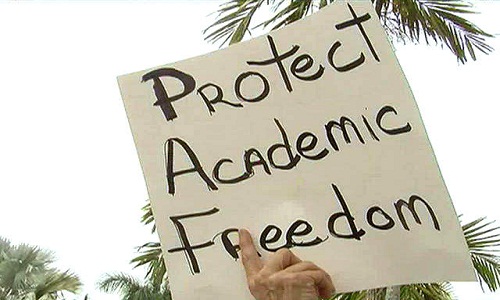Academic in Indonesia were up in arms over a new regulation, issued by the Home Affairs Ministry, that required all research projects to be submitted to and approved by the government so that they could screen out any that could potentially lead to “negative impacts” to the country.
The ministry faced heavy criticism from academics who called the anti-science stifling of academic freedom like something out of the country’ repressive New Order era, especially since the term “negative impacts” was not defined in the regulation.
Yesterday, representatives of the ministry tried to defend the policy but their conflicting reasons was telling. While the ministry’s director general of politics and public administration, Soedarmo, said negative impacts was in reference to dangers potentially faced by the researchers themselves (like say, if they wanted to undertake research in parts of Papua), the ministry’s legal bureau chief, Sigit Widodo Pujianto, said research that could cause conflict among Indonesians would be rejected.
“Examples of the negative impact of the research, for example, is why one [group] has straight hair and the other has this kind of hair, or why this religion exists here while that religion exists there, highlighting divisions. This could harm the country,” Sigit said as quoted by KBR yesterday.
Apparently those explanations didn’t satisfy the critics and later that same day, the Home Ministry announced that it would be repealing the regulation until it had received input from various groups (including academics, who were not consulted about the new regulation prior to its issuance). According to the announcement, the ministry will hold a consultation meeting on February 8 and use the results of that discussion to issue a new regulation on research.
For now, the government will revert to the previous 2014 regulation that required researchers to report their activities to the local government.





Reader Interactions